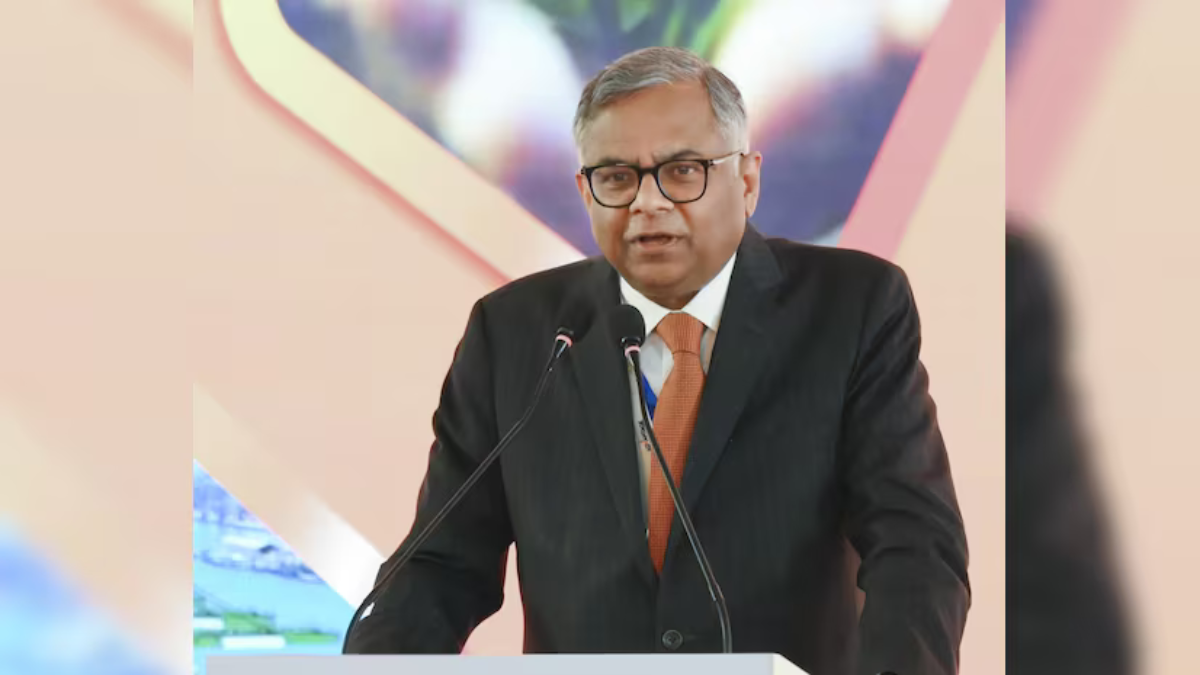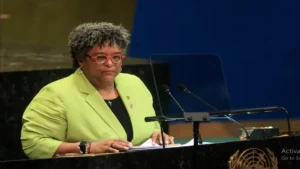N Chandrasekaran, the Chairman of Tata Sons, has been appointed as a member of the International Monetary Fund (IMF) Managing Director’s Advisory Council on Entrepreneurship and Growth. This council aims to provide insights into macroeconomic and financial policies to support innovation, entrepreneurship, and long-term economic growth.
Introduction
The International Monetary Fund (IMF) has formed an Advisory Council on Entrepreneurship and Growth under the leadership of Managing Director Kristalina Georgieva. The council will focus on enhancing macroeconomic conditions to facilitate sustainable economic growth.
Among the newly appointed members is N Chandrasekaran, the chairman of Tata Sons and a board member of the Reserve Bank of India (RBI). His inclusion in the advisory panel highlights his prominent role in global business strategy and economic policy discussions.
IMF’s Objective Behind the Council Formation
The IMF has recognized that the medium-term outlook for global economic growth is at its lowest in decades. According to Kristalina Georgieva, one of the key reasons for this slowdown is declining productivity growth.
To counteract this challenge, the IMF has brought together experts from business, finance, academia, and policymaking to discuss and implement effective policies for sustainable economic growth. The council will focus on ways to enhance innovation, entrepreneurship, and productivity, which are crucial for a thriving private sector and robust economic development.
Role of N Chandrasekaran in the Advisory Council
N Chandrasekaran, popularly known as Chandra, is a well-respected figure in the global business landscape. As the chairman of Tata Sons, he has spearheaded several business transformations within the Tata Group, emphasizing digital growth, innovation, and sustainability. His appointment to the IMF Advisory Council reflects his deep understanding of business, entrepreneurship, and economic policies.
Being a member of the Reserve Bank of India (RBI) board, Chandrasekaran already plays a crucial role in shaping India’s economic policies. His participation in the IMF council will further strengthen India’s global economic influence.
Structure and Functioning of the Advisory Council
The IMF Managing Director’s Advisory Council will convene every three months to hold structured discussions under Chatham House rules, ensuring confidential and open exchanges of ideas. The insights gained from these discussions will guide the IMF’s policy research and help in framing macroeconomic and financial policies aimed at promoting higher productivity growth.
Key Responsibilities of the Council:
- Providing expert insights on macroeconomic policies that can enhance entrepreneurship.
- Discussing strategies to improve financial stability and long-term economic growth.
- Collaborating with global financial leaders to create a favorable business environment.
- Advising on policies that can support innovation, productivity, and private-sector development.
Importance of the Council’s Work for Global Economy
The formation of this advisory council is a crucial step in addressing global economic challenges. By focusing on innovation and productivity, the IMF aims to create a strong foundation for sustainable growth.
This council’s discussions will help in designing financial policies that support businesses and economies worldwide. By involving leading industry experts like Chandrasekaran, the IMF ensures that its policies are aligned with real-world business and financial dynamics.
Summary of the News
| Aspect | Details |
|---|---|
| Why in News? | N Chandrasekaran, Chairman of Tata Sons, has been appointed to the IMF Managing Director’s Advisory Council on Entrepreneurship and Growth. |
| Objective of the Council | To enhance macroeconomic and financial policies that support entrepreneurship, innovation, and economic growth. |
| Chandrasekaran’s Role | As a council member, he will provide insights based on his experience in business leadership and economic policy. |
| Council’s Meeting Frequency | The council will meet every three months under Chatham House rules to discuss economic strategies. |
| IMF’s Concern | The global economic growth rate is at its lowest in decades, mainly due to declining productivity. |
| Significance of Appointment | Strengthens India’s presence in global economic policy-making and reinforces Tata Group’s global influence. |
| Expected Outcome | The council’s discussions will guide IMF policies to support higher productivity growth and financial stability. |



 Harsharan Kaur Trehan Becomes PSPCL’s Fi...
Harsharan Kaur Trehan Becomes PSPCL’s Fi...
 Who Is Asha Sharma? Indian-Origin Leader...
Who Is Asha Sharma? Indian-Origin Leader...
 Mia Mottley Secures Historic Third Term ...
Mia Mottley Secures Historic Third Term ...








